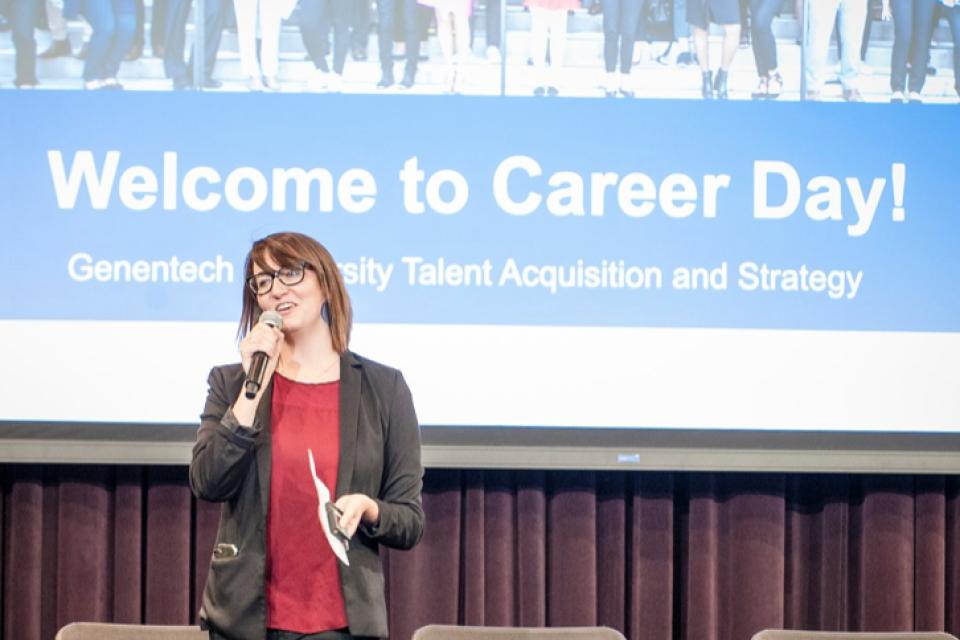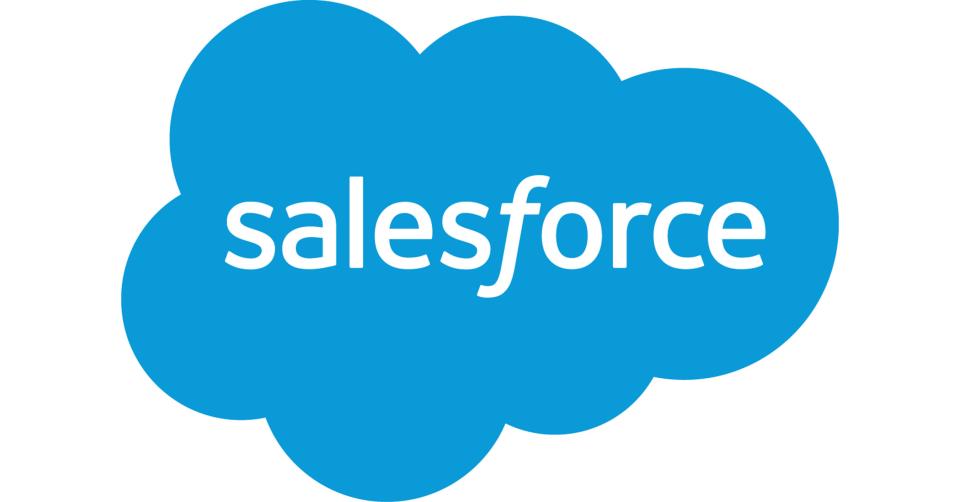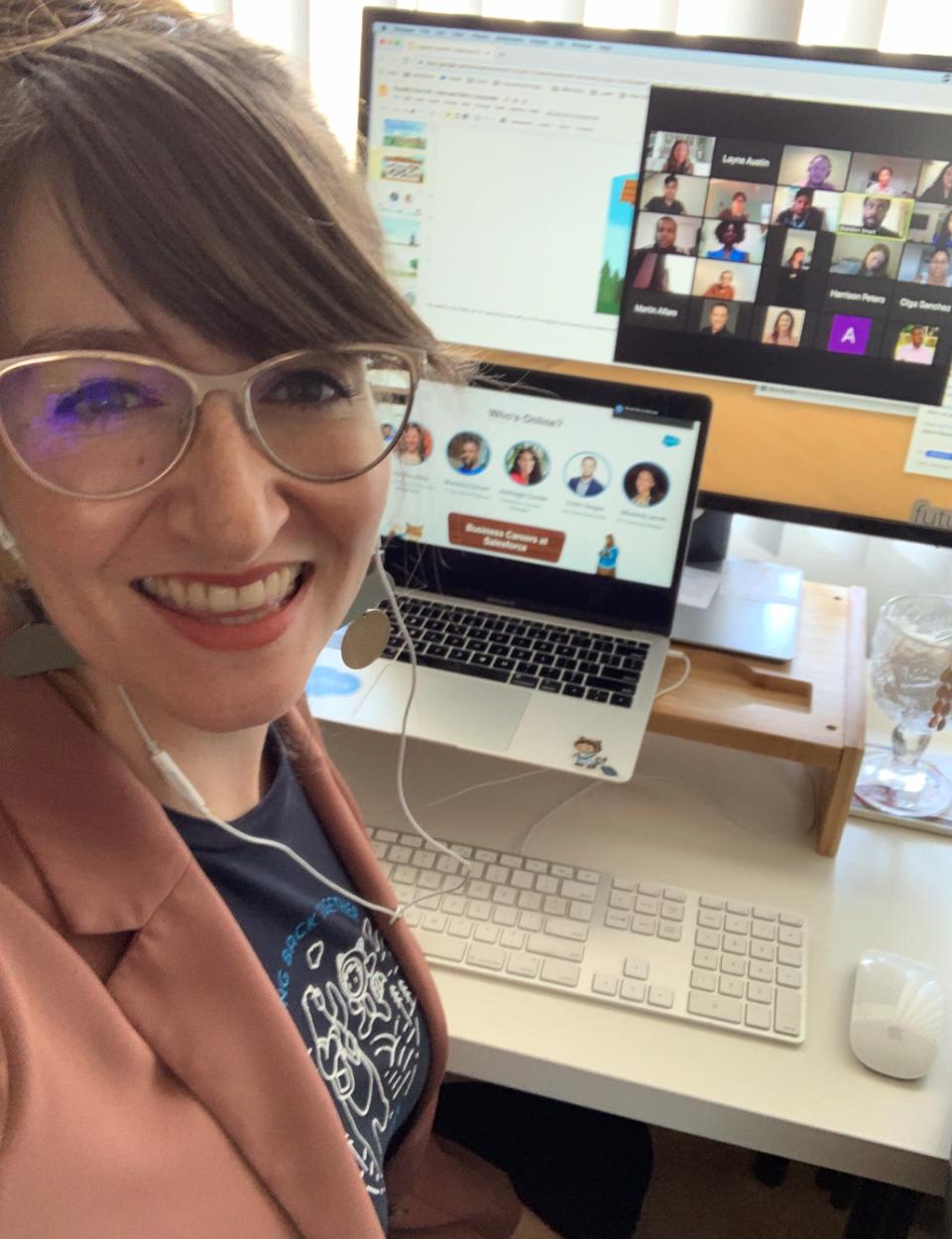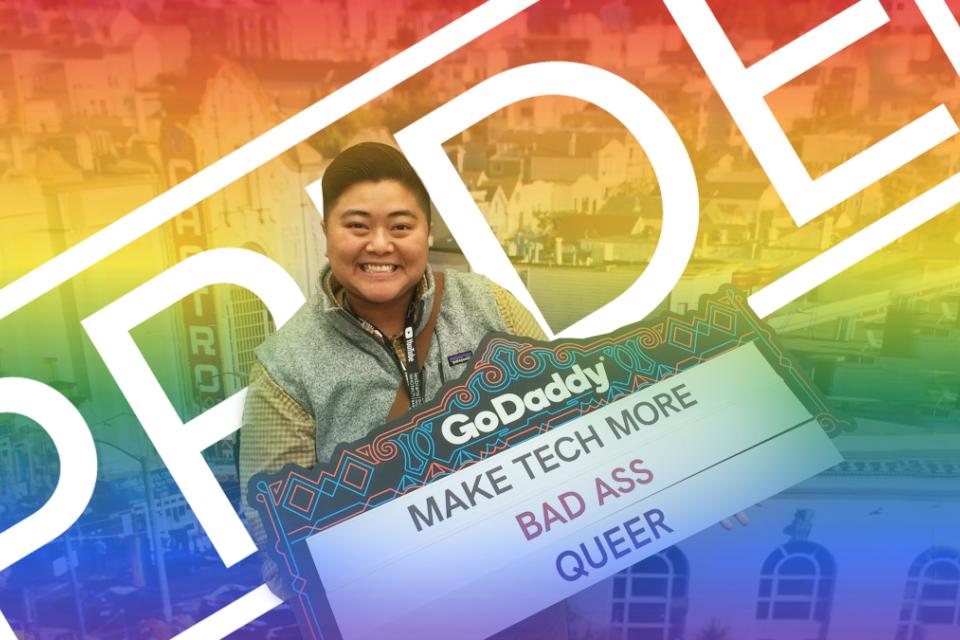“Dot-Connector”: An MBA Recruiter in the Classroom
Attracting top talent for Genentech, Tesla, Salesforce

Disclaimer: The opinions and perspectives shared in this article are Layne’s and not those of her employer.
I’m an MBA student and an MBA recruiter. Some people use the term head hunter, but I like dot-connector instead. It’s not easy doubling up in education, but how I ended up in this role is a funny story.
After completing my undergraduate degree, I spent months searching and finally landed a “real” job. I was working on the University Talent Acquisition and Strategy Team at Genentech, and I had no idea what I was doing.
Soon after I started, I remember a moment when my boss turned to me, and I could have sworn she told me, “I think it would be best if you could support the NBA program moving forward.” Huh?
I thought it was cool that we had a program to help ex-basketball players get jobs, but I wondered if it was the best use of our resources. Knowing now that she said “MBA” shows just how little I knew about the world of business schools at the time.
Regardless of the massive amount of knowledge and context I was about to collect over the next several years, this moment changed the trajectory of my future.
B-School, Not Basketball
I began supporting the MBA program (no basketball players in sight) soon after that meeting with my boss. I helped coordinate interviews, travel, and developing the summer events and marketing materials for the program. Through this experience and exposure each year to my beloved MBA interns, I started to learn about the impact an MBA degree could have.
I interviewed entrepreneurs, career-switchers, healthcare enthusiasts entering the field for the first time, and people who had so much experience in biotech that an interview felt more like organic chemistry 101.
I started to see the trend: An MBA was the hidden path, a secret passage from one career step to another.
From the vantage point of my role, I started to see the impact that candidates I had hired were making on their company. I watched my once-interns-now-managers present at company events and execute strategies, knowing that their MBA was a jumping-off point. The seed was planted in my head; I, too, would return to the classroom.

Talent from Tesla to Salesforce
As my career grew beyond Genentech and I moved across the bay to Tesla in Fremont, I absorbed new contexts. I encountered different challenges regarding recruitment and talent attraction, exposure to various leadership styles, and most importantly, deepened my understanding of diversity, equity, and inclusion practices.
From packaging to engineering, I was working to hire student interns within manufacturing and production. I fell in love helping students discover the first steps on their career journey.
In 2019, I found my way to San Francisco and back to the world of MBA recruiting in my current role at Salesforce. All the pieces came together—my interest, the context, and my goals—for me to finally apply to business school.
I decided on the UC Davis Bay Area Part-Time MBA program for a few reasons. First, having just started my new role at Salesforce, I wasn’t ready to quit and join a full-time program. I had so much energy and excitement around building upon the existing program, and I wanted to iterate as I developed skills in the classroom.

Additionally, having had exposure to practically every MBA program in the U.S., I understood the value of the on-campus community. Obviously, 2020 and the pandemic changed our plans, but I was looking for a tight-knit cohort, one that discouraged a highly competitive culture between students. The Graduate School of Management (GSM) became a clear winner in this regard, and I was very grateful to have been accepted.
Building Relationships
I know I’ll look back at this time, specifically, my first two quarters of school at the GSM, with a smile. I’ve experienced the joy of finding community and support in a cohort of like-minded individuals. We’ve gotten each other through tough times despite never meeting each other in person.
As I work through the program, I know that never again will I be on the exact same journey as my candidates. I’ve commiserated the GMAT and double-declining depreciation with my candidates. I’ve learned to avoid interviews during finals, and I’m thrilled to apply my newfound skills to my role in recruiting.
I can make quantitative sense of my candidate pipelines, and have the tools necessary to analyze offer acceptance data. I’ll forever change the way I market and communicate my intern opportunities. I’m so grateful to the GSM for bringing me into the family and allowing me to experience “the other side of the table.”


